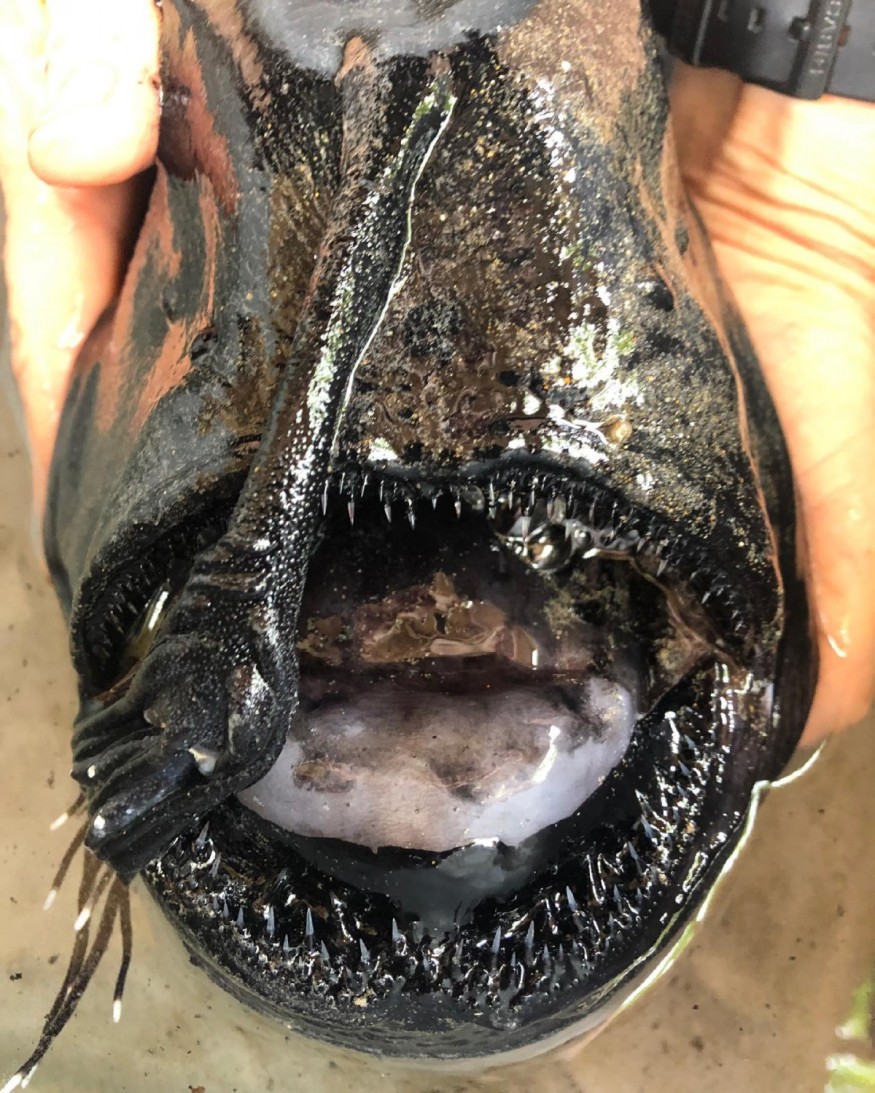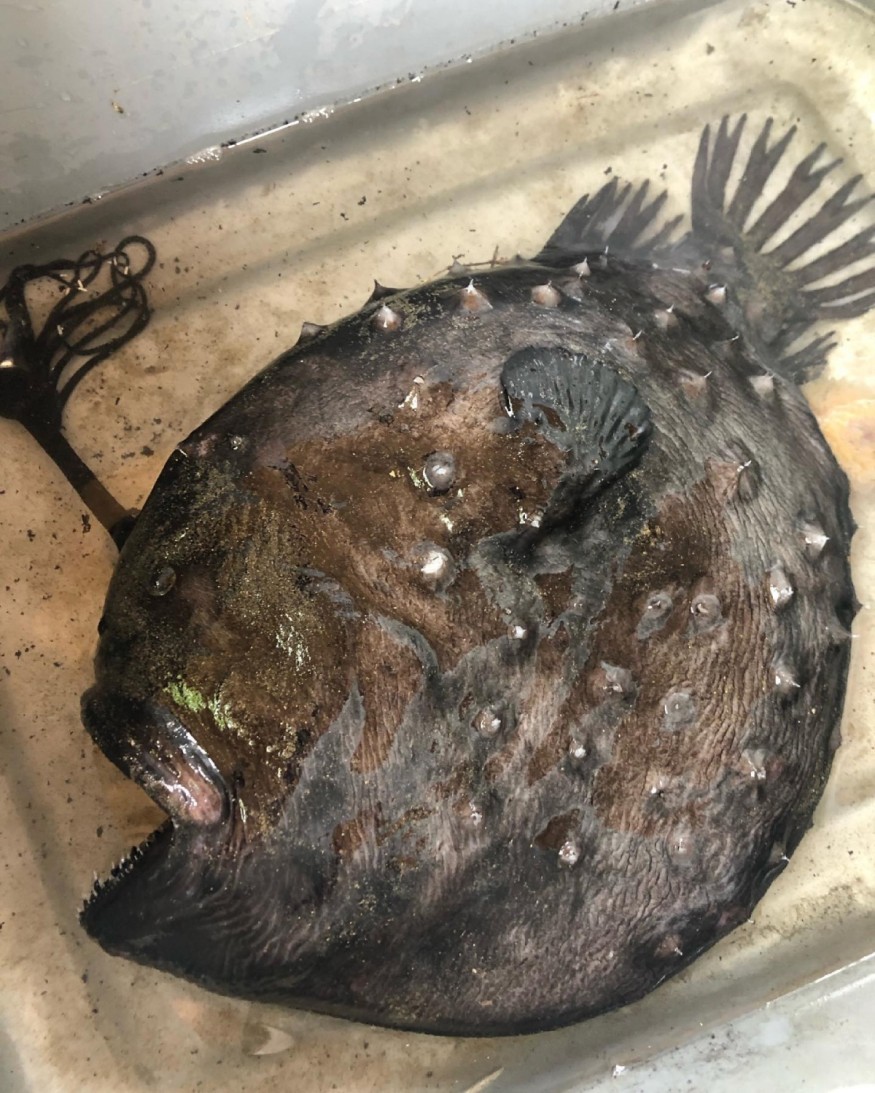Unusual Find
Ben Estes reported a strange fish he saw Friday morning to state park rangers and lifeguards at Crystal Cove State Park.
According to a Facebook post by
href="https://www.facebook.com/DaveysLockerSportfishing/photos/pcb.10158370414247989/10158370414087989/">Davey's Locker Sportfishing & Whale Watching, a local boat tour company, this fish was not dragged onto their docks but had actually washed up on the beach.
Deep-Sea Pacific Footballfish

The fish was described as a deep-sea Pacific footballfish, a form of anglerfish that can be found at depths of more than 3,000 feet beneath the surface.
They also mentioned that this particular anglerfish is one of over 3,000 live anglerfish species worldwide.
Though the fish is not uncommon, seeing one this well-preserved on a beach in Southern California is exceptionally unusual.
The fleshy long dorsal fin stretches in front of the mouth and is equipped with a phosphorescent bulb that can emit light to attract unwitting prey near to it.
It's unclear why this 18-inch fish washed up on the beach almost entirely preserved.
Although it's unknown where this unusual discovery will end up - parks or educational establishments - the California Department of Fish & Wildlife is actually housing it, according to the Crystal Cove Conservancy.
Washing Ashore

Weakened animals may float with the current until they are washed ashore, while disoriented animals may stray into shallower waters by mistake.
Predation
Predation, whether predator or prey, can cause animals to beach themselves. Grover remembers orcas being trapped while chasing stingrays in shallow water, as well as dolphins diving onto a beach to escape an orca. Although orcas often launch themselves onto the beach to search, they sometimes make mistakes and must wait before a big enough wave washes them back into the water.
Human Interference
Humans are still contributing to the problem. Many of the accidents (and deaths) that result from strandings are caused by fishing, noise, ship collisions, and other factors. The most common human-made cause of death for cetaceans is entanglement in fishing lines. Robinson blames fishing for the baiji dolphin's physical disappearance and the imminent extinction of the vaquita. Overfishing deprives animals of their primary food supplies, forcing them to prey in marine or shallow waters.
Environmental Problems
Any factors, such as pollution, are difficult to detect. Both chemicals ultimately end up in the ocean, where they inflict long-term harm. While it's challenging to confirm correlation, Rob Deaville, project manager at CSIP, says there's proof that diseased animals have higher levels of environmental contaminants than safe animals. Meanwhile, entanglement, absorption, or contamination of microplastics accumulated in their bodies may damage these animals due to plastic pollution.
For the latest animal news, don't forget to follow Nature World News!
© 2025 NatureWorldNews.com All rights reserved. Do not reproduce without permission.





